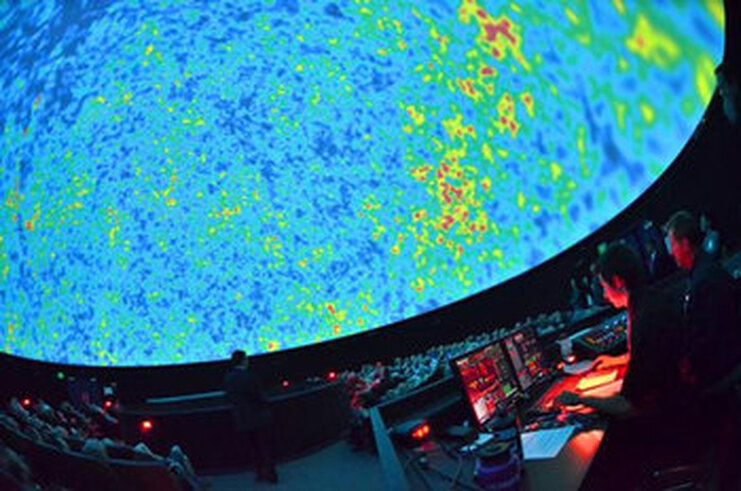|
More than a year ago, the NASA Astrobiology Program gave a $1.108 million grant to the Center for Theological Inquiry. And if that doesn’t make any sense to you, you’re not alone. The project is intended to refresh and expand scholarly and public dialogue on this subject, which is of growing interest due to the discovery of thousands of extrasolar planets and the ongoing search for potentially habitable environments in our solar system and beyond. With this $1.108 million grant, CTI will oversee a resident team of visiting scholars in theology, the humanities, and social sciences that will conduct aninterdisciplinary inquiry on the societal implications of astrobiology, the study of the origins, evolution, distribution, and future of life in the universe. This inquiry will extend over two academic years from 2015 to 2017… … Announcing the NASA grant, CTI’s director William Storrar said, “The aim of this inquiry is to foster theology’s dialogue with astrobiology on its societal implications, enriched by the contribution of scholars in the humanities and social sciences. We are grateful to the NASA Astrobiology Program for making this pioneering conversation possible.” To put that another way, NASA made a million-dollar donation to a religious group so that it could study how the discovery of extraterrestrial life would impact Christianity. Why is NASA funding any sort of dialogue about the intersection of science and religion? That’s what Jerry Coyne, who noticed the grant, wanted to know earlier this week. And that’s what the Freedom From Religion Foundation is now exploring: “The Establishment Clause of the First Amendment prohibits any ‘sponsorship, financial support, and active involvement of the sovereign in religious activity,'” FFRF Staff Attorney Andrew Seidel ritwes to NASA officials. “Specifically, the government may not fund religious projects, as various courts have ruled over the years.” Then there is the issue of use and misuse of scarce taxpayer dollars. The utilization of a significant amount of tax money to determine how theology — by definition a faith-based belief system — might respond to speculative future scientific discoveries is wasteful for two reasons. First, religion deals in matters of faith, not fact, and faith-based arguments inevitably boil down to arguments that cannot be settled by appeal to empirical evidence. Second, history shows that religion does one of two things when presented with scientific discovery: denial or incorporation of the fact as “evidence” or “proof.” There’s still a year left in the grant and FFRF is asking NASA to refrain from throwing any more money toward the project. FFRF also points out that the John Templeton Foundation, which is known for funding projects that promote an overlap between religion and science much to the ire of many high-profile atheists, is co-sponsoringthis project: If the Templeton Foundation wishes to fund religious research, it can use its $3 billion to do so… the U.S. government may not. FFRF has also filed a FOIA request to learn more about NASA’s grant. If all of this checks out, it would be a remarkable waste of money for an organization that’s already underfunded. It’s much harder to make that case that NASA needs a greater slice of our federal budget when it’s spending that money on something that wouldn’t advance our knowledge in any meaningful way. As of this writing, NASA hasn’t responded to FFRF’s letter. But we’ll follow up if and when they do. Source: http://www.patheos.com/
1 Comment
5/16/2023 11:56:15 am
I make over thirty k a month working part-time. I kept hearing from other people telling me how much money they could make online, so I decided to find out. Well, it was all true and it completely changed my life.s
Reply
Leave a Reply. |
Helena MatiasEditor Archives
May 2024
Please take a look below at the amazing work of Author and researcher Stephen Quayle
Categories
All
|




